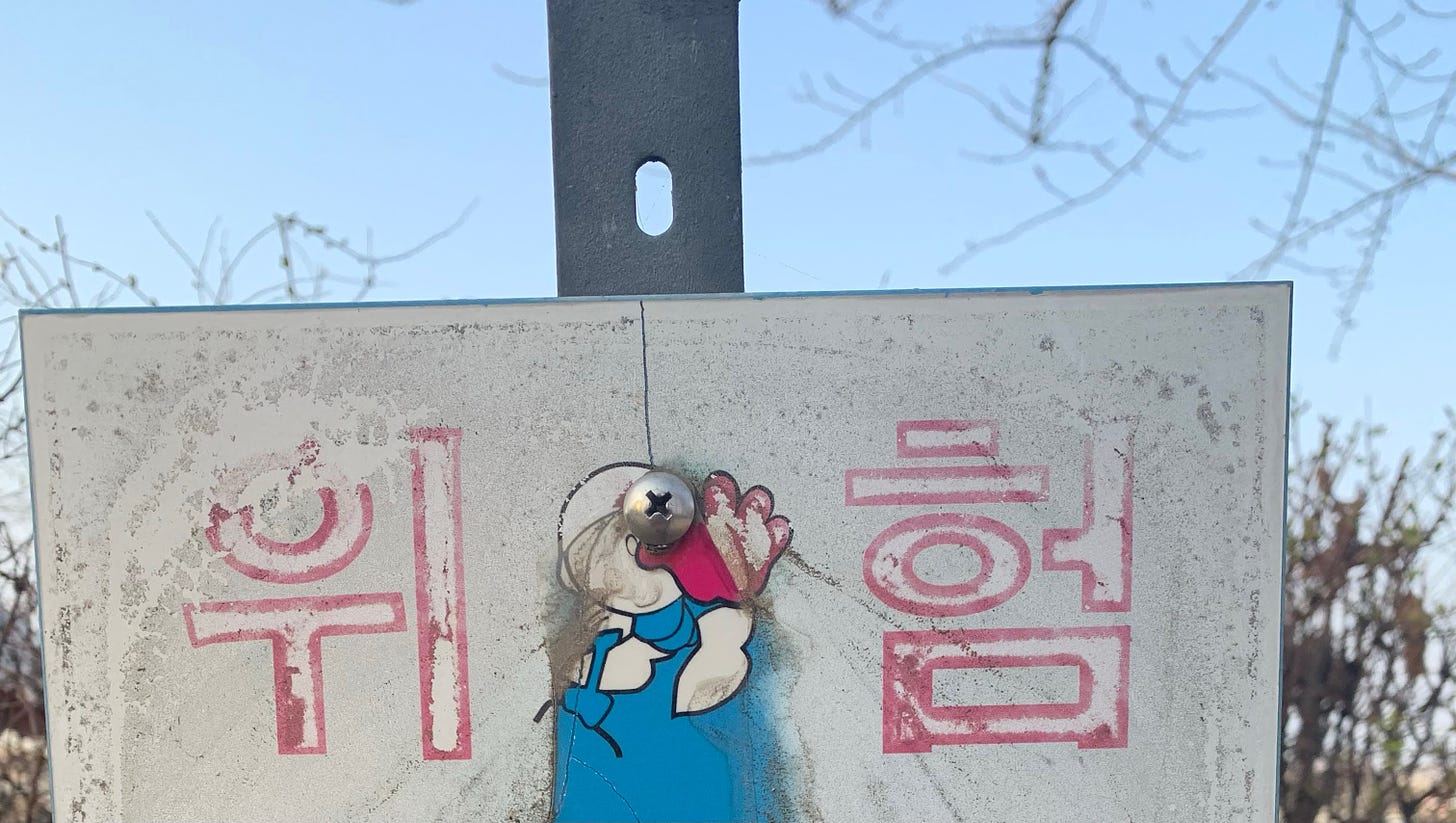South Korea’s nuclear ambition holds a place in the national consciousness
It might seem illogical to the rest of the world, but a sense of vulnerability has a pervasive pull on policy.
Living in Seoul, you hear it often enough: “Korea was invaded more than a thousand times”. Depending on who you talk to, the number changes. I’ve personally heard “300”, the very precise “993 times of which 720 times was Japan”, the nonchalant “around 1000”, the exaggerated “3000”, and the catch-all, “more than any other country”. You could debate the facts, but you’d be missing the point. The truth of the matter is irrelevant. What matters is how such beliefs add to a sense of suspicion and vulnerability – the belief that Korea is a small, vulnerable country, surrounded by larger predatory states. This sense of vulnerability is part of Korea’s national consciousness - and it contributes to the push for nuclear weapons.
You read that right. A nuclear armed SOUTH Korea. Not the North. The country that sits below the 38th parallel.
To understand this sense, it’s important to appreciate “national consciousness” as the awareness of a shared identity. The sense that geography, history, culture, and often ethnicity, differentiates a social group from their neighbours. National consciousness can play a positive role in development. It strengthens unity and solidarity, encourages civic engagement, and promotes collective action in times of crisis. It can also hamper development. It can be used to divert attention to less pressing issues, maintain self-defeating rivalries, and exacerbate intolerance. The national consciousness is also dynamic and changes as the state develops.
In South Korea, this dynamism is more intense. South Korea’s rapid development means there is a significant generation gap between those who lived under authoritarianism, those who struggled against it, and those who experienced it through history books, soap operas, and intergenerational trauma. Both the older and younger generation are influenced by this sense of vulnerability but react to it differently. The older generation sees nuclear weapons as a means to defend the country (marked by more frequent use of the defence-oriented term haegmujang or “nuclear armament” rather than the more offensive-oriented haegmugi or “nuclear weapons” used when referring to North Korea). The younger generation sees them as an equaliser that makes Korea the same as the nuclear-armed permanent five members of the UN Security Council (marked by more frequent use of the term haegboyugug or “nuclear armed state”).
The policy impact of national consciousness is difficult to trace, but it’s important - particularly during periods of stress. Just as an individual under stress reverts to early learned behaviours, the decision-makers of a nation under stress rely more heavily on their perception of the national consciousness.
South Korea is in a period of stress. The relative decline of the United States and the erosion of the liberal international world order threatens the security and stability it once enjoyed. During periods of stress when decision-makers are more likely to rely on gut instincts, they subconsciously invoke the national consciousness. Their resultant decisions are easily understood by those who share similar beliefs but can seem illogical to those outside the fold.
In this way, South Korea’s pursuit of nuclear weapons makes sense in the country, but seems illogical outside.
From outside Korea, the irrational sense of vulnerability is difficult to understand. Interestingly, one state that came close to harbouring a similar sense of vulnerability is Australia. The irrational sense of vulnerability that for a long time sat quietly in the corner of Australia’s national consciousness was the threat of invasion from the north – a fear of Asia. As demonstrated by several researchers, this fear once held a heavy influence on decision-making. It contributed to decisions on land use, population, national defence and foreign policy. Conceivably, it also contributed to Australia’s consideration of nuclear armament in the decade after the Second World War.
Over time, Australia’s sense of vulnerability abated. Population growth, multiculturalism, exposure to Asia through study and travel, and an increased variety of media influences transformed Australia’s younger generations. The fear of invasion from the north substantially decreased. Yet, unarguably, it still sits threateningly somewhere in the deepest recesses of Australia’s national consciousness. During periods of stress or strategic upheaval, Australia could conceivably revert to such fears. Indeed, some would argue it still impacts Australia’s decision-making on China.
For two reasons, you will not hear national consciousness and a sense of vulnerability mentioned by proponents of nuclear weapons in South Korea. First, let’s face it, nobody wants to admit they feel vulnerable – least of all those in the national security field. Second, it’s difficult to express. Reflecting this, proponents use more rationally plausible arguments that stand up to public debate and encourage evidence-based policy solutions – North Korea, China, Russia/Ukraine, or Trump. This is how we ended up with the Washington Declaration.
The Washington Declaration (and the Nuclear Consultative Group) explicitly addresses concerns regarding North Korea. Implicitly, particularly within the thinktank community, it’s regularly discussed in the context of China, Russia/Ukraine, and Trump. Yet, without a commensurate education and publicity campaign, the Washington Declaration will never address the broader, underlying sense of vulnerability ingrained in the language, geography, history and culture. Living in Seoul, you hear words that never reach Washington.
As published 1 July 2024 at the Lowy Interpreter



